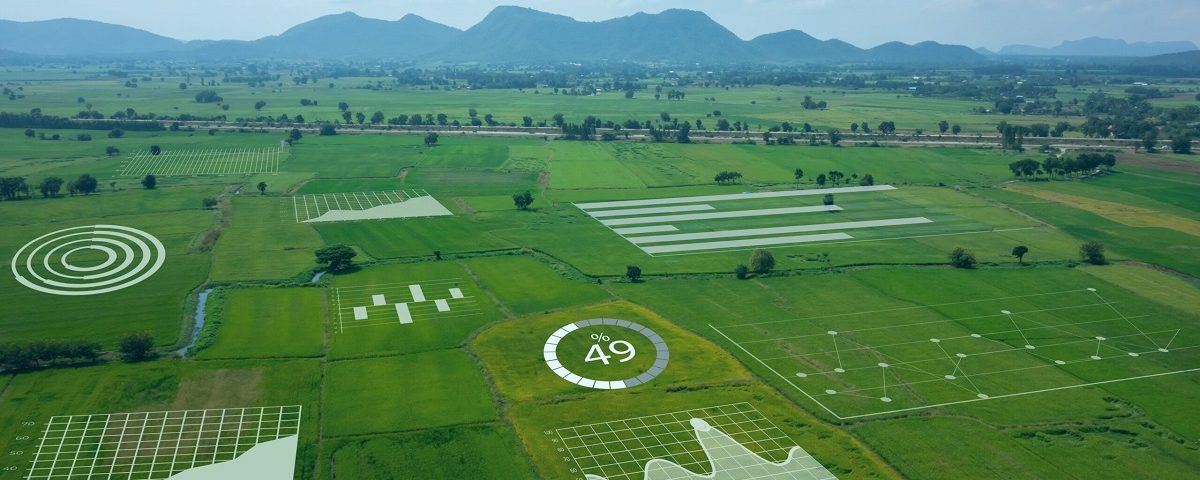
BIG DATA IN SUPPLY CHAIN MANAGEMENT
March 29, 2022
Big Data in Human Resource Management
March 29, 2022Big data has been evolving rapidly in the past decade. It is now commonly used in various industries, including agriculture. The role of big data in agriculture is essential and plays a big part in improving farming techniques and yield.
In this article, I will explore the following: what big data is, how it has evolved, the statistics on big data growth in agriculture, the role of big data in agriculture, and future trends of big data in agriculture.
What is Big Data?
One can define big data as extremely large and complex datasets that are difficult to process using traditional software tools. The volume, velocity, and variety of big data are increasing unprecedentedly, making it difficult for companies to keep up.
We can trace back the history and development of big data in agriculture can be traced back to the early 2000s, when big data first emerged as a term. Then, large enterprises and governments mainly used big data to store, process, and analyze their massive datasets. However, with the advancement of big data technologies, such as Hadoop, big data is now more accessible to smaller businesses and organizations.
Big Data in Agriculture
In agriculture, companies use big data to improve yield, predict weather patterns, map soil composition, and track livestock. As a result, the growth of big data in agriculture has been impressive. According to a study by IDC, the big data market for agriculture is expected to grow from $2.9 billion in 2016 to $8.9 billion by 2020. This represents a compound annual growth rate of 24.4%.
Its role in agriculture is vast and varied. Farmers can use it to improve farming techniques, increase yield, predict weather patterns, map soil composition, track livestock, and much more. Below are some examples of how large enterprises and governments are using big data in agriculture:
Big Data in Agriculture and Predicting Weather Patterns:
One of the most critical roles of big data in agriculture is predicting weather patterns. Farmers can better prepare for storms, floods, and droughts by predicting weather patterns. In addition, governments and companies have used big data to create detailed weather maps that help farmers make better decisions. These decisions include when to plant crops, irrigate fields, and spray pesticides.
Tracking Livestock:
Farmers and companies also use big data to track livestock. By tracking the location of livestock, farmers can better understand how animals are grazing and moving on the farm. Farmers can then use this information to decide where to place fences, water troughs, and feeders. Therefore, it allows farmers to efficiently make use of their farming land.
Mapping Soil Composition
Another critical role of big data in agriculture is mapping soil composition. By mapping the chemical and physical properties of soil, farmers can better understand which farm areas are more fertile and which areas need additional fertilizer or irrigation. Therefore, farmers are able to gain maximum yield from their farm because they have a better understanding of the soil.
Improving Farming Techniques
Farmers can also use big data to improve farming techniques. For example, they can use it to develop machine learning algorithms that help them decide when to harvest crops, how much water to use, and when to apply pesticides. Therefore, they improve their yields due to acquiring more specific knowledge on these factors that influence production.
The growth of big data in agriculture is changing how farmers do business. Its role in agriculture is becoming more critical every day, and its impact will only continue to grow in the years to come.
Trends and future of big data in agriculture
The future of big data in agriculture is bright. With the rapid growth of big data, there are many opportunities for innovation and growth. Here are some of the most exciting trends and opportunities in big data agriculture:
Internet of Things (IoT):
The IoT is a network of physical objects connected to the internet. By connecting devices like tractors, harvesters, and drones to the internet, farmers can collect real-time data about their crops and operations. This data can be processed and analyzed by big data tools to improve yield, reduce costs, and increase efficiency.
Data Analytics:
Data analytics is the process of extracting insights from big data datasets. By analyzing big data, farmers can make better decisions about managing their crops, livestock, and resources. Companies can also use data analytics to predict trends and forecast outcomes.
Big Data Platforms
Big data platforms are software tools that enable businesses to store, process, and analyze big data. These platforms provide a centralized location for big data storage and make it easy to access and analyze the data. big data platforms are essential for businesses that want to take advantage of big data technologies.
The role of big data in agriculture is rapidly evolving and expanding. As big data technologies become more sophisticated and accessible, the impact of big data will continue to grow. Exciting trends like the IoT, data analytics, and big data platforms are changing the way farmers do business and making agriculture more efficient.
At Softlink Options, we are keen to ensure our clients’ websites and data are secure. So we invest a lot in data security. So check out all our products and services.
CONTACT US in case of any queries. We take pride in the quality of our products and services.



